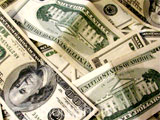The Swiss Pleas Fail to Sway SNB on European Debt Crisis.
Post Views 0The Swiss central bank is resisting all calls from executives and politicians to further try and weaken the franc amid investor demand for a nice haven from the region’s debt crisis.
In September, UBS AG analysts estimate defending the franc’s cap of 1.20 per euro cost the Swiss National Bank about 5 billion francs ($5.7 billion), while government ministers and labor unions say the initiative is still putting jobs at risk. Policy makers have toughened their language in a fervent effort to weaken the currency further and may be unwilling to absorb the expense of adjusting their limit after currency purchases led to a new record loss in 2010.
”Obviously, they’re under enormous pressure,” says Peter Rosenstreich, who is the chief currency analyst at Swissquote Bank SA in Geneva, by phone on Nov. 8. ”Their verbal intervention has really convinced the market that the next move is going to be higher and that’s enormously effective without costing them anything. They’ll continue to use a very hawkish tone.”
On Sept. 6, the Zurich-based SNB, that was led by Philipp Hildebrand, imposed a cap for the very first time in three decades after investors sent the franc 17 percent higher against Europe’s shared currency in the previous 12 months. It approached parity on August 9, trying to strengthening to a new record of 1.0075 per euro, while also boosting the threat of deflation and weighing on economic growth and increasing the relative cost of exports.
At 4:31 p.m. in Zurich, the franc traded at 1.2319 against the euro, little changed on the day.
On Nov. 7, the SNB Vice President Thomas Jordan said the franc was still ”very very strong.” and also said that the policy makers are ready to ward off price threats if needed. He declined to comment on whether the central bank has considered whether or not to raise the cap, saying that the franc may remain under pressure ”for a while.”
”Our mandate is very clear: We need to deliver price stability and make a contribution to the stabilization of the economy,” he said. ”We are monitoring the situation permanently. We are analyzing it and if there is a reason to act, we are obviously ready to take further measures.”
With the exports accounting for around half of gross domestic gross product, the Swiss economy is vulnerable to a strengthening currency. Last month, the consumer prices unexpectedly dropped from a year earlier and household
sentiment slumped slumped more than economists forecast to the lowest in more than two years.
”If the SNB at some point feels that the deflation risk had increased relative to the September assessment, raising the floor is pretty much the only instrument it has left,” said Beat Siegnethaler, who is a currency strategist at UBS in Zurich, by an email on Nov. 7. ”The likelihood of the next quarterly assessment being more downbeat and resulting in the euro-franc floor being lifted has increased substantially.”




 2006-2015 Median Weekly Earnings of Full-Time Workers in the United States
2006-2015 Median Weekly Earnings of Full-Time Workers in the United States  Chicago’s Top Tech Companies
Chicago’s Top Tech Companies  Atlanta’s Top Telecom, Cell Phone, and Electronics Manufacturers
Atlanta’s Top Telecom, Cell Phone, and Electronics Manufacturers  US Dollar Gaining Momentum
US Dollar Gaining Momentum  Top Canadian Companies You Want to Work For
Top Canadian Companies You Want to Work For